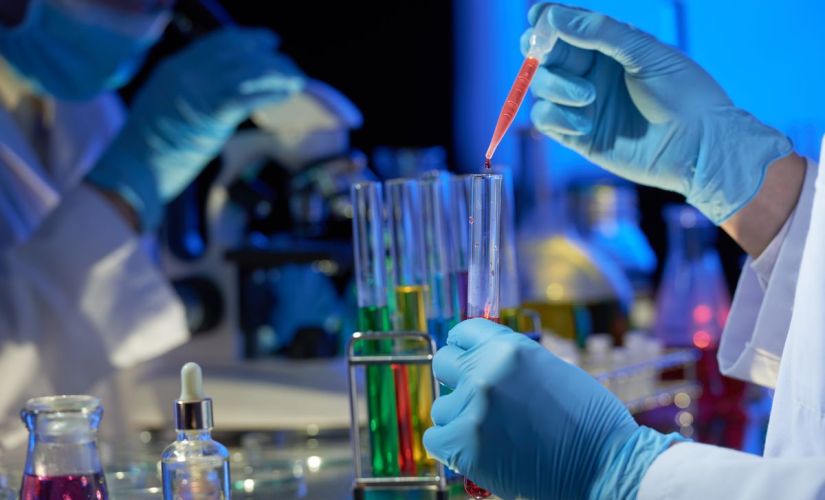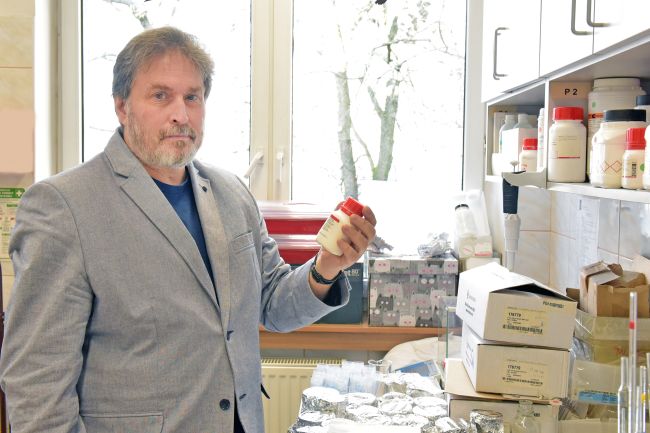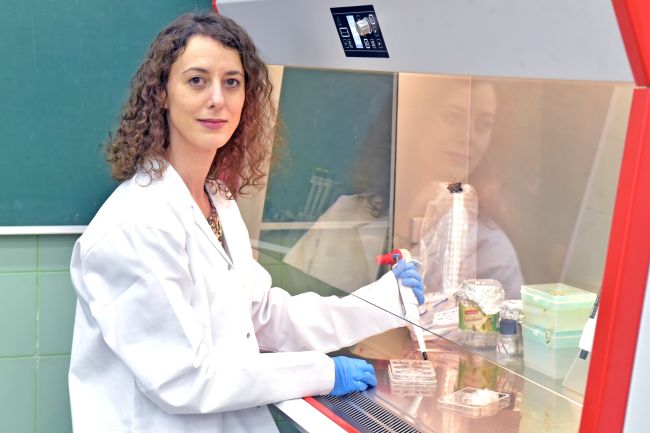Winners of the OPUS 25 Program
Prof. Piotr Ulański from the Faculty of Chemistry TUL has received over PLN 2.4 million in funding for the project: New biopolymer radioisotope nanocarriers for melanoma theranostics, obtained using radiation technology.
The project is interdisciplinary in nature. The research will be conducted in cooperation with the teams composed of: Prof. Agnieszka Piastowska-Ciesielska from the Medical University of Lodz and dr inż. Urszula Karczmarczyk from the National Centre for Nuclear Research - Radioisotope Centre POLATOM.
The project is a response to the need for new nanomaterials that will help to diagnose cancer or deliver drugs, other biologically active compounds or radioisotopes precisely to sore places, reducing harmful side effects. - New challenges continue to arise on the path of nanomedicines between the laboratory and the patient's bedside which is why in our project we want to try to solve them - wrote Prof. Ulański in the project description.
As part of the project, Prof. Ulański wants to create a universal nanoplatform for the delivery of drugs and radioisotopes which can be relatively easily adapted to a specific need, i.e. to a given disease or the method of its treatment or diagnosis.
Our platform will be based on functional biopolymer nanogels produced in an environmentally friendly process, which addresses another challenge we face – the synthesis of a perfect nanomaterial must be simple and clean. In our project, we will achieve this by using ionizing radiation – explains Prof. Ulański, who works at the Institute of Applied Radiation Chemistry of TUL.
The innovativeness of the research in the project also lies in the implementation of the assumption that it would be best if the nanocarrier could simply disappear after the treatment. Is it possible?
This is indeed possible. By using biodegradable starting materials, we can design nanosystems that will degrade, leaving behind only simple organic compounds, such as sugar molecules. In our project, we will use radiation synthesis of nanogels based on polymers of natural origin, e.g. plants, which are not only biocompatible, but also biodegradable – explains Prof. Ulański.
On the part of TUL, the research will be carried out by a team composed of: dr hab. inż. Sławomir Kadłubowski, TUL Prof., mgr inż. Beata Rurarz, Prof. Piotr Ulański and dr inż. Radosław Wach, with the participation of PhD students, diploma students and volunteers.
Research on the nerve cell implant
Dr hab. inż. Katarzyna Nawrotek from the International Centre for Research on Innovative Biomaterials (ICRI-BioM) has received funding for the project: Biomaterials inducing DNA demethylation as tools for future neuronal regeneration therapies, which will be implemented in international cooperation with dr Anika Nagelkerke from the Groningen Research Institute of Pharmacy (the Netherlands), dr Ksenia Skvortsova from the Garvan Institute of Medical Research (Australia) and dr. n. med. Przemysław Płociński from the Institute of Microbiology, Biotechnology and Immunology at the Faculty of Biology and Environmental Protection of the University of Lodz.
As the competition winner explains, recent advances in molecular biology and neurobiology help discover effective tools for the regeneration of damaged nerve cells, which make normal functioning much more difficult for many people, hence the idea for implantable biomaterials.
In the project, we will develop a neural implant capable of releasing molecules that induce changes in gene expression, including those critical for the regeneration of neurons, - explains dr Katarzyna Nawrotek and adds: - Implantable biomaterials supporting tissue repair are becoming more and more popular among researchers involved in regenerative medicine.
It turns out that the structure of biomaterials can be equipped with tips for cells that promote their regeneration. The latest research focuses on the structural and mechanical properties of biomaterials that cause epigenetic changes, i.e. changes in gene expression that do not involve modification of the DNA sequence.
The most promising direction for researchers involved in tissue engineering and regenerative medicine is the design of neural implants that will support the recovery of normal functions by peripheral nerves.
In the long term, the project results will help pave the way to the development of new therapeutic methods enabling the recovery of lost sensory and motor functions after peripheral nerve injuries, - says dr Nawrotek.
Winners of the PRELUDIUM 22 Program
Two doctoral students from the Interdisciplinary Doctoral School TUL have received funding for research.
Volodymir Denysenko from the Faculty of Mechanical Engineering has received over 157,000. PLN for the implementation of the project: New indicators simplifying the study of nonlinear systems with applications to the study of complex dynamic behaviours of coupled systems.
Coupled nonlinear systems and complex nonlinear systems (CNS) arouse great interest and fascination of many researchers. In recent decades, much effort has been dedicated to studying the dynamics of such systems. Our PhD student has also decided to take up this topic.
The main goals of his project are: Designing efficient and universal tools to simplify CNS research and using the developed tools in researching the dynamics of various types of CNS, focused on explaining their elementary and complex properties, searching for necessary and sufficient conditions for the emergence of behavioural patterns occurring in the dynamics of such systems - wrote the doctoral student in his application to the National Science Centre.
Ewelina Kowalska from the Faculty of Chemistry has received PLN 70,000. PLN for the project: Enantioselective, photocatalytic cycloaddition using a bifunctional catalyst.
One of the basic tasks of modern organic chemistry is to develop new methods of creating carbon-carbon bonds. The aim of the project is to combine the potential of asymmetric catalysis with the tool of photochemistry, which may lead to the discovery of new transformations and enable the synthesis of complex molecules while maintaining stereochemical control. Additionally, the synthetic methodologies proposed in the project create new opportunities for the development of unique reaction schemes, opening access to compounds that cannot be obtained using classical methods – fragment of the project description.



